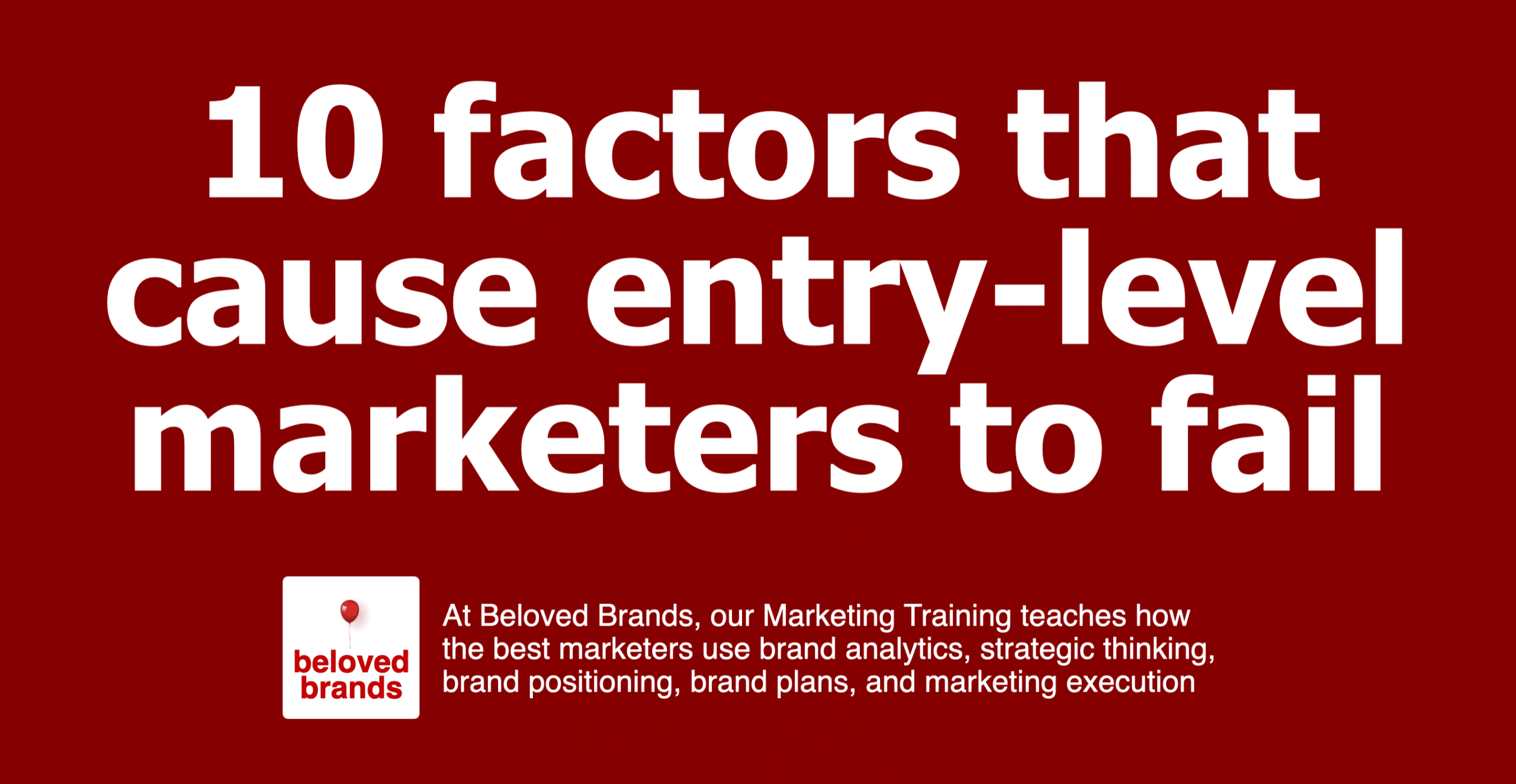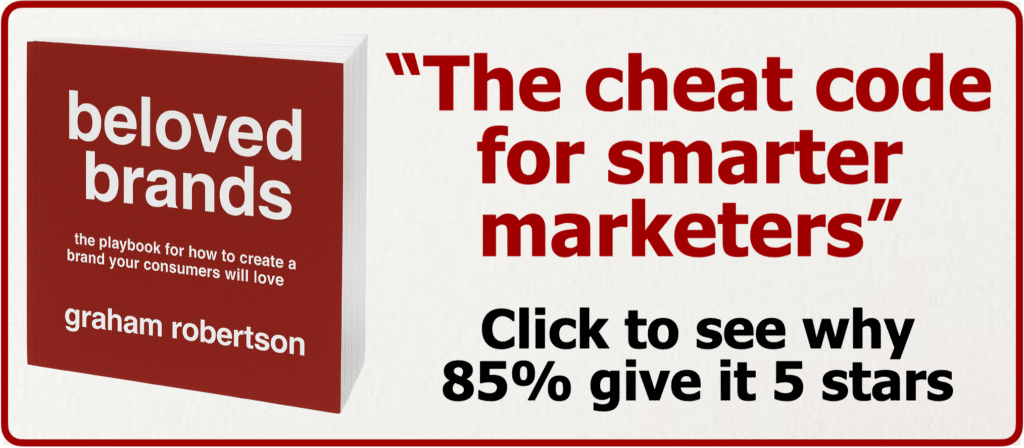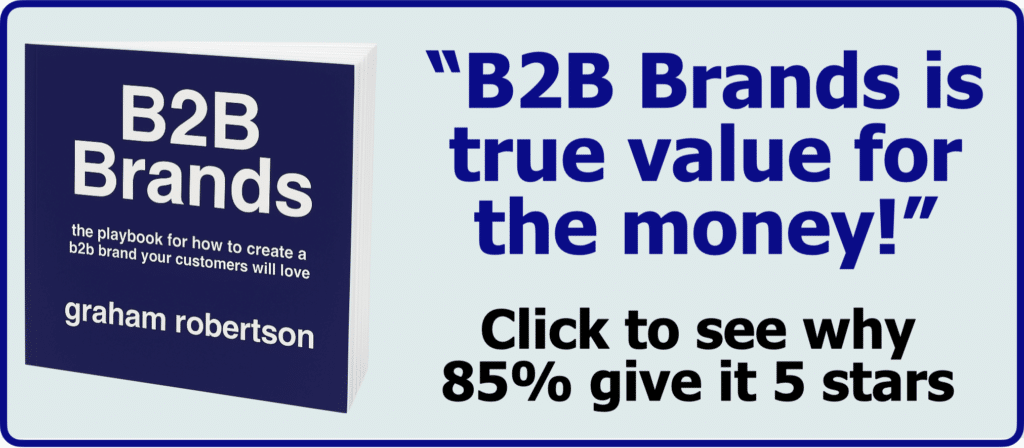Every year, CPG companies hire thousands of the best and brightest to become Assistant Brand Managers. Usually, there are big recruiting events that generate hundreds of resumes or companies use recruiters to send the best resumes they have. The process for screening can be intense with 5+ interviews, including senior people, sometimes a test or a presentation to a group. Yet, about 50% of Assistant Brand Managers won’t even make it to Brand Manager within the 2-3 years and out they go. It’s a tough up-or-out process.

Here are the 10 reasons why that an entry-level marketer might fail
1. You can’t do the analytical storytelling.
The Assistant Brand Managers who fail to turn monthly share reports into stories that can travel up the organization. Their deep-dive analysis is either too complicated for anyone to follow the story or too shallow that they only do the “surface cleaning” type analysis that never really finds the real insight, just what we already know.
2. You struggle to deal with the ambiguity of marketing.
The ambiguity boxes them in where they can’t think differently about a problem, or it causes them personal stress. These Assistant Brand Managers develop solutions to get out of ambiguity rather than reveling in the ambiguity to find the best solution.
I once asked a candidate, “How do you deal with ambiguity?”. She answered, “I try to organize it because no one likes ambiguity”. She asked me how I deal with ambiguity, and I said, “I revel in it. I love it. I struggle with it. Let the ambiguity eat away at me until I find that great answer, not just settling for an answer because it gets me out of the ambiguity faster.”
3. You are slow at moving projects through.
When Assistant Brand Managers struggle to make it happen, it could be that they are indecisive, unproductive, disorganized, or can’t work with others. They are frustratingly slow for others. They keep missing the small milestones, causing the team to miss the deadlines. Sometimes, it’s not whether you are slow or fast, but really, are you slower than your peers?
4. You selfishly think about yourself.
This becomes a blind spot and leadership de-railer. It’s about ego, gossip, over-stepping their role, going above heads politically. When ABMs are highly political, but not really politically astute. And, when they are not a team player with peers or cross-functional players. The system has a way of isolating these people. Your boss’s boss might love you. But all your peers and subject matter experts might destroy you. This raises a red flag for future leadership roles.
5. You don’t work well through others.
Conflicts, teamwork issues, and communication. The odd thing about an entry-level marketer is you must work through a group of subject matter experts (SME’s) who know what they are doing, and you’re relying on these same people to teach you how to be a good Assistant Brand Manager.
Your supply manager will teach you about forecasting, packaging approvals, and even design tricks. And, your finance manager can teach you about accounting and the key indicators management looks for. Moreover, your promo manager or trade marketers will teach you about customers, salespeople etc. If you don’t use these people to enhance your skill, you’ll eventually crash and burn. The collection of SME’s will likely teach you more about marketing than your boss will. And if they can’t work with you, they’ll also be the first to destroy your career.
6. You miss answers by not being flexible.
They fail to find the balance between what the head thinks, what your heart feels or even what the gut tells you. When an Assistant Brand Manager is questioned, a senior manager can tell if they have struggled enough with a problem to get to the rich solution or whether they just did the adequate thinking to get to an “ok” solution.
The style of a good senior manager’s questions is not always information gathering, but rather designed to poke holes in the story to see that the deep, rich thinking and even the appropriate struggling have gone on.
7. You fall for tactical programs that are off strategy.
This becomes a tell-tale sign that they won’t make it to Brand Manager, where you will own the strategy. They deviate from the strategy to choose the coolest tactic that has nothing to do with the goals or strategy. You become a great executor, but not the thinker needed. Marketing is a balance of strategy and execution.
8. You hold back from making contributions to the team strategy.
Just a do-er. They don’t proactively provide a point of view on strategy. They don’t show the ownership needed to become a brand manager and people start to wonder if it’s in there or not.
9. You settle for “ok” rather than pushing for “great”.
While many Assistant Brand Manager jobs are executional, if there becomes a pattern of just taking the ” okay” ideas, it begins to look as if they don’t care enough. If they aren’t passionate enough to push back, will they be able to do so later in their careers?
10. Poor communicator with management or partners.
The Assistant Brand Managers who fail to adequately warn when there are potential problems. They leave their manager in the dark. They confuse partners because they don’t keep them aware of what’s going on.9
Everyone brings weaknesses to the job. The question is what will you do to fix those weaknesses.
On day 1 as an Assistant Brand Manager, everyone has a few of these de-railers, some that you can easily over-come but others will take the full two to three years to really fix. What really separates “great” from the “ok” is what you’re willing to do with these.
Those who seek out feedback, welcome it and act on it will be the successful ones. I hope that your company has a process of giving feedback or that you get lucky to have a manager that cares about your career and is willing to give you the tough feedback. But if not, seek it. Be honest with yourself and try to fix one of these per quarter. And grow into the role of Brand Manager before you get promoted.
Best of luck to you. I do hope you get promoted to Brand Manager.
Covering every aspect of brand management, it is no wonder that our readers reach for Beloved Brands multiple times each week to guide them through the challenges of Assistant Brand Managers
Get ready for a mind-bending journey as we take you on a deep dive into your brand strategy. We’ll challenge you with thought-provoking questions designed to shake up your thinking and help you see your brand in a whole new light. And our unique process for defining your brand positioning will leave you with fresh ideas and new possibilities for how to differentiate your brand.
But we won’t just leave you with ideas – we’ll show you how to turn them into action. Learn how to write a brand plan everyone can follow, ensuring that all stakeholders are aligned and contributing to your brand’s success. We’ll walk you through the creative execution process, from writing an inspiring brief to making smart and breakthrough decisions.
When it comes to analyzing your brand’s performance, we’ve got you covered. Our innovative methods will help you dive deep and uncover insights you never knew existed, giving you the knowledge you need to make the best decisions for your brand’s future.
As a B2B marketer, you know that the key to driving growth is a strong brand. But how do you develop and execute a winning B2B brand strategy? Look no further than the B2B Brands playbook.
Prepare to think differently about your B2B brand strategy with B2B Brands. We want to challenge you with thought-provoking questions and take you through our process for defining your brand positioning. Our goal is to expand your mind to new possibilities for your brand by using real-life examples of successful B2B brand positioning strategies.
We’ll start by showing you how to create a brand plan that’s easy for everyone to follow, ensuring that all stakeholders understand how they can contribute to your brand’s success. Moreover, we guide you through the creative execution process, including how to write an inspiring brief and make decisions to achieve smart and innovative communications.
Finally, we’ll teach you new methods to analyze your brand’s performance through a deep-dive business review.
Our B2B Brands playbook offers a wealth of knowledge and insights, including B2B case studies and examples to help you learn new techniques. It’s no wonder that 85% of our Amazon reviewers have given us a 5-star rating. So, join us on this journey to unleash the potential of your B2B brand.











